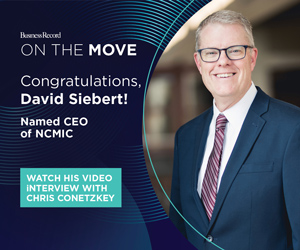The business of Rock

.floatimg-left-hort { float:left; } .floatimg-left-caption-hort { float:left; margin-bottom:10px; width:300px; margin-right:10px; clear:left;} .floatimg-left-vert { float:left; margin-top:10px; margin-right:15px; width:200px;} .floatimg-left-caption-vert { float:left; margin-right:10px; margin-bottom:10px; font-size: 12px; width:200px;} .floatimg-right-hort { float:right; margin-top:10px; margin-left:10px; margin-bottom:10px; width: 300px;} .floatimg-right-caption-hort { float:left; margin-right:10px; margin-bottom:10px; width: 300px; font-size: 12px; } .floatimg-right-vert { float:right; margin-top:10px; margin-left:10px; margin-bottom:10px; width: 200px;} .floatimg-right-caption-vert { float:left; margin-right:10px; margin-bottom:10px; width: 200px; font-size: 12px; } .floatimgright-sidebar { float:right; margin-top:10px; margin-left:10px; margin-bottom:10px; width: 200px; border-top-style: double; border-top-color: black; border-bottom-style: double; border-bottom-color: black;} .floatimgright-sidebar p { line-height: 115%; text-indent: 10px; } .floatimgright-sidebar h4 { font-variant:small-caps; } .pullquote { float:right; margin-top:10px; margin-left:10px; margin-bottom:10px; width: 150px; background: url(http://www.dmbusinessdaily.com/DAILY/editorial/extras/closequote.gif) no-repeat bottom right !important ; line-height: 150%; font-size: 125%; border-top: 1px solid; border-bottom: 1px solid;} .floatvidleft { float:left; margin-bottom:10px; width:325px; margin-right:10px; clear:left;} .floatvidright { float:right; margin-bottom:10px; width:325px; margin-right:10px; clear:left;}
THE BANDS
DeiFieD
Two of DeiFieD’s members came from Seattle and Los Angeles, and both see greater potential to make it as a band in Des Moines.
“The Seattle scene is kind of like the Los Angeles scene where it’s just very saturated,” Brennan Lamoree said. “There’re just a lot of bands.”
Having moved to Des Moines for a girlfriend and
a potential band opportunity – both of which didn’t work out – Lamoree started working as a disc jockey. Two of DeiFieD’s members heard Lamoree sing and asked him to join the band at the same time as drummer Brian Ickowitz. When all four members played together for the first time, “it just clicked,” Lamoree said.
Since then, the band has tried to play about eight shows a month. Now they are looking to play more outside Des Moines and are organizing their first tour to Los Angeles, where they’ve managed to book a show at a bar known for drawing scouts from record labels.
Venues such as House of Bricks have helped give them the boost they’ve needed to take the band to the next level. “They’ll pretty much give any band the opportunity to play there,” said bass player Danny Coulter.
“As opposed to Seattle or Los Angeles,” Lamoree added. In those cities, “if you’re not a prestigious band … they will not book you at their club.”
But now Lamoree and Coulter said the band needs either an investor willing to provide the $20,000 or so needed to record a full-length album or attention from a record label. All of the money they make from the shows goes into a fund that has helped the band pay for its first self-recorded album and the upcoming tour. Meanwhile, the band members have kept their full-time jobs, with Coulter doing clerical work for a family business and Lamoree doing maintenance at a mobile home park.
DeiFieD believes the music industry, especially record labels, are not looking at Des Moines’ talent yet, although local festivals such as the Des Moines Music Coalition’s Gross Domestic Product are helping to change that.
“If we could get record labels out here, I think they’d be really surprised by the caliber of music coming out of Des Moines,” Lamoree said.
But the band also has only been together for three years and sees greater potential.
“It’s just being in the right place at the right time or having the right amount of drive,” Coulter said. “Eventually it will happen.”
The Envy Corps
The Envy Corps went from regularly playing for audiences of 20 people at Vaudeville Mews in 2005 to headlining the first Gross Domestic Product festival in 2006, where more than 1,000 people flocked to their stage.
“That is when we really saw that we were kind of on to something,” said lead guitarist Brandon Darner.
By summer 2006, the band had signed with a major record label in London, which allowed them to quit their other jobs and focus on recording a full-length album at Sound Farm Studio & Recording Environment in Jamaica, Iowa. For most of 2007, the band lived in London, playing shows throughout Europe. This year, they returned to Des Moines and will focus on writing new music and touring in the United States.
The Envy Corps plans to remain in Des Moines because of the cheaper cost of living (with their current income “still fairly meager,” Darner said) and because the environment fits the topics they’re most interested in writing about.
The dream, which started when the four members came together in early 2005, became real after Darner and Luke Pettipoole spent six months making business contacts and booking shows. They even found an entertainment lawyer in Las Vegas who promoted their music to others in the industry. “We basically just decided to make it our job to get the band signed and take it to the next level,” Darner said.
He also attributes its success to the emergence of smaller venues, such as Vaudeville Mews, in Des Moines. In the late 1990s, “the best young bands could do was rent a room at the Botanical Center,” Darner said. “There really wasn’t an environment for bands to be successful at a higher level.”
Though the record label gave The Envy Corps the freedom to produce its own album – a rarity for young bands, Darner said – the proliferation of MySpace, blogs and other new media has allowed other bands, especially those in smaller cities with a less-developed music scene like Des Moines, to make it on their own.
“If you have the energy to really work hard and take everything into your own hands, a band can record their own music, distribute it online, put it in the hands of bloggers and music industry people,” he said. “That can create a buzz about the band and then you can retain all the rights to your music.”
THE BUSINESSES
Sam Summers
Job: promoter, First Fleet Concerts | Age: 24
As a student at Iowa State University, Sam Summers became used to traveling throughout the Midwest to see musical acts that wouldn’t come to Des Moines. Then, at a show in Iowa City, he met Fall Out Boy, a band from suburban Chicago, and began booking shows for them in the capital city. Eventually, the band drew a sell-out crowd at the Val Air Ballroom and left Summers when it reached the arena level. But by this time, Summers had a network of agents and had become the main promoter of alternative rock, pop and indie music in Des Moines through his business, First Fleet Concerts.
“If you talk to other successful indie promoters, there’s always that band that got them their start,” he said.
Summers’ business became profitable and demanding enough for him to quit his job at Wells Fargo & Co. this spring. Still, the business of booking shows, advertising them and selling tickets is risky. With an economics and marketing degree, he feels he has the tools to avoid major flops, but he admits it’s always a gamble. On any given show he can lose his entire deposit or make up to 15 percent of the profit.
“It would be nice if there was a book I could pick up, but there isn’t,” he said. “That’s what kind of keeps the barriers for entry, because there’s so much people don’t know.”
Summers started out at House of Bricks and Vaudeville Mews, but he now lines up acts for People’s Court and the Val Air as well, which have larger capacities. He prefers to stay within this range, rather than competing with big names, such as Live Nation Inc., on the arena level.
Still, he has found that pop and punk shows in Des Moines can usually outdraw similar shows in Omaha in attendance. Fan interest has led bands to start calling him rather than him seeking them out.
But one of the biggest challenges is getting the word out to his 14- to 18-year-old demographic, which doesn’t listen to the radio or read newspapers. He would like to see kiosks downtown on which he could post posters of upcoming events.
Though he likely won’t find another Fall Out Boy anytime soon, Summers isn’t worried. “Agents are almost forced to work with me, because who else are they going to work with to do a show?” he said. “The competition is limited.”
Matt Sepanic
Job: owner, Sound Farm Studio & Recording Environment | Age: 31
After years of working his way up from taking out trash to actually working on music, Matt Sepanic had the choice to either buy SR Audio & Cinemedia Productions in Des Moines after the owner passed away or start his own studio. Given the amount of money required to build a studio and buy equipment, Sepanic decided he wanted a place that was built right – not just retrofitted – and that he owned.
So he bought a farm in Jamaica, Iowa, and built the recording studio of his dreams, which includes a couple of smaller studios, a studio with cathedral ceilings large enough to hold an orchestra and living quarters with four bedrooms, so musicians could stay there while they worked. “Everything’s tied in, so you could literally do a vocal in the bathroom if you wanted to,” Sepanic said.
In just a year and a half of opening Sound Farm Studio & Recording Environment, he has worked with several up-and-coming Central Iowa bands, including The Envy Corps and Dirty Little Rabbits, with a professional setup unlike any other studio in the area. Then came his big break: Slipknot decided to record its latest album, which will be released late this summer, at Sound Farm.
“It’s just more than we could ask for in the first couple of years,” Sepanic said.
Though he wouldn’t go into details of construction or recording costs, he said, “I can’t say I’m swimming in money by any means, but we’re paying for the business itself.”
Sepanic is booking musicians about three to four months in advance and is usually in the studio from late morning through the evening. His wife, Melissa, a self-employed photographer, also helps, as well as Jason Toomsen, a part-time manager and backup engineer.
Most of his work has been with local bands, but now that people are hearing about Slipknot’s experience, the interest “we’ve seen already is just huge,” he said. Sepanic would like to keep this momentum going in his career as a freelance engineer, producer and mixer. “I would love to take myself to that next extreme as far as being out there as a producer and engineer for a wider platform,” he said.
THE BOOSTERS
Jill Haverkamp
Volunteer: marketing and public relations co-chair of Des Moines Music Coalition
Age: 25
Jill Haverkamp returned to Des Moines with a degree in marketing communication and public relations from Columbia College in Chicago and three years of experience in that city’s music industry. Though Chicago opened her eyes to the indie music scene, Des Moines gave her the chance to get more involved in it, even with a full-time job at The Integer Group.
She joined the Des Moines Music Coalition (DMMC) board of directors in January last year, a time when the group was growing and starting to develop the 80/35 music festival. Since then, she has taken a leading role in working with media and promoting DMMC’s events.
Now that some Central Iowa bands are reaching the level where they can start to afford marketing and public relations agents, Haverkamp is considering whether it might be a viable business opportunity for her in the future. But so far, most support for local bands remains on a volunteer basis.
“There are so many people who want to volunteer to help,” Haverkamp said. “Bands have managers who do it for free, and I think that’s what’s so great about it – it is helping the scene grow.”
She also sees support from radio stations and independent record stores that are willing to feature local talent. Radio stations have started adding local music to their regular programming, rather than relegating it to one time slot, often on Sunday evenings.
DMMC has worked hard to showcase local talent as well, Haverkamp said, from its festivals to the Music University, which teaches musicians about the business side of the industry.
Haverkamp has noticed that most of the drive for the Des Moines music scene is coming from the younger generation. “All over the United States people are gravitating toward up-and-coming smaller-size bands not everyone knows about yet, and that’s really focused, I think, on that younger generation,” she said.
Greater Des Moines Partnership
For its first marketing campaign, “Change Your View,” the Greater Des Moines Partnership hired the Nadas to write a song to fit the theme. The song was so well-received that the organization sponsored the Nadas’ latest CD and had them write the song “Feels Like Home” as an anthem to promote the state.
As part of its sponsorship, the Partnership also is joining the Nadas at some of the band’s tour destinations to hand out DVDs featuring the song, T-shirts and other Des Moines paraphernalia. Because most of the audiences the Nadas attract have some ties to Iowa, Mary Bontrager, executive vice president for community development at the Partnership, said, “we already have a foot in the door.”
The Partnership would not disclose how much it spent on the one-year sponsorship, but said it has seen some success, with its first person returning to Des Moines from Los Angeles after attending a Nadas concert.
“We recognize that there are performers that make a living from music and art and there’s a high majority that have day jobs and live their passion by nights and weekends,” Bontrager said. “And we want to showcase that Des Moines has that environment that can really nurture that spirit.”








